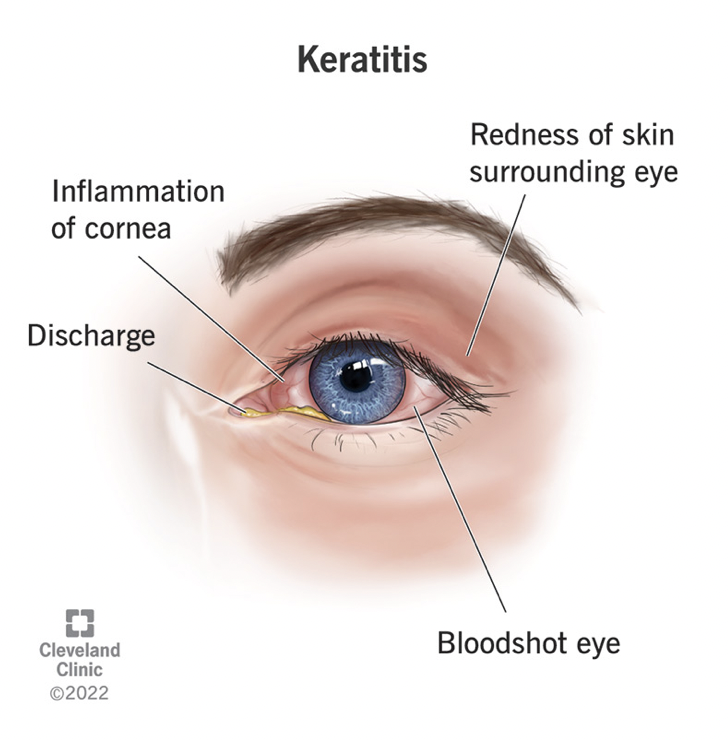
Eyes Wide Shut: The Dangers of Sleeping with Contact Lenses
By Suzan Manoian – March 29, 2024
Contact lenses have truly revolutionized vision correction, offering convenience for millions of people around the world. If you are like one-third of contact wearers, you have probably fallen asleep while wearing contacts once or twice. You might have woken up with only minor dryness in your eyes that disappeared with either a blink or some eye drops. However, amidst the convenience, contact wearers overlook the importance of proper care and wear habits.
Contact lenses create a barrier between the cornea and the surrounding air, limiting the amount of oxygen and moisture your eyes can access. While you are awake, blinking helps keep your eyes moist, with oxygen flowing in through the tears you produce. However, while you are sleeping, the decrease in oxygen levels becomes even more severe. Without enough oxygen flow – a state known as hypoxia – the cells in the cornea lose their ability to effectively protect themselves from microorganisms.
Cleveland Clinic, “Keratitis,” https://my.clevelandclinic.org/health/diseases/24500-keratitis, accessed March 2024
With that said, contact lenses provide a conducive environment for bacterial growth and thus increase the risk of infection. Bacterial keratitis is a corneal infection, usually resulting from either Staphylococcus aureus or Pseudomonas aeruginosa, both of which are bacteria found on the human body and in the environment. Wearing contact lenses for extended periods of time, such as overnight, increases the duration of exposure to such bacteria. In addition to keratitis, when you sleep with your contacts in, you are at risk for other severe eye infections. In fact, every year, one in 500 contact lens users develops a serious eye infection.
If you accidentally fall asleep with contact lenses in, it is essential to take immediate action steps to minimize the risks to your eye health. Upon waking, remove your contact lenses as soon as possible. If they feel stuck, apply lubricating eye drops until they are easy to remove. These drops can also help replenish moisture to the eyes and alleviate symptoms of dryness or irritation. Then, give your eyes a break by avoiding contact lens wear for the rest of the day, paying attention to how your eyes feel. If you notice any symptoms of irritation, redness, vision changes, or any concerning symptoms, consult your eye care doctor for evaluation immediately.
From reduced oxygen supply to bacterial contamination, the dangers associated with sleeping with contacts in are real and potentially sight-threatening. Here's the bottom line: removing your contact lenses anytime you sleep is an imperative step in keeping your eyes healthy, happy, and free of infection for years to come.
Suzan Manoian
B.S. Molecular, Cell, and Developmental Biology – Class of 2027
